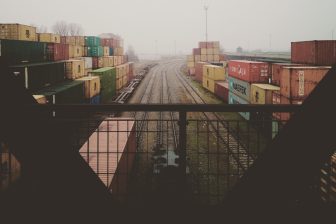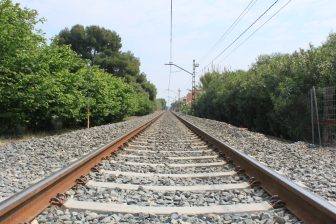Dutch freight trains get more space, even last-minute
Additional space is available for freight trains on the Dutch railway network, even if that space is requested ad hoc. This is possible as significantly fewer passenger trains are making use of the network during the corona crisis. As long as sufficient personnel is available, this space can be filled ad hoc with extra freight trains, infrastructure manager ProRail explained to sister publication SpoorPro.
“Running an additional freight train is certainly possible,” says ProRail spokesman Aldert Baas. In fact, in addition to regular trains, there is room to run ad-hoc trains. In such a case, this is orchestrated by the carrier and ProRail. The carrier first examines the entire route and then submits a request to the infrastructure manager for a train path.”
At ProRail, this happens at the One Stop Shop of the capacity allocation department. However, in case of a last-minute request the carrier will need to request the train path at the traffic control department. “It is possible that a train cannot leave at the desired time because it is already very busy. Then an alternative is considered.”
Scale down
ProRail is currently trying to run all trains. “However, as soon as we reach a time when this can no longer be done, due to illness among our own staff or due to external factors, choices will have to be made,” says Baas. In consultation with the Ministry of Infrastructure and Water Management, ProRail has elaborated a scaling-down principle for this purpose, whereby the continuity of crucial freight corridors from the ports to the hinterland is facilitated as much as possible.
Currently, there is a temporary shift from the road to rail when it comes to container transport. This is due to the corona crisis, which has led to a lot of problems for road transport at the borders within the EU. Countries set additional controls that cause long traffic jams. On Thursday, ProRail announced that facilitating rail transport for trade and production companies will be a top priority.
If it is no longer possible to run all train services because of illness among staff, rail freight will be given priority. Transport organisation Evofenedex, together with its European umbrella organisation the European Shippers’ Council (ESC), previously called on the government to keep the railways available for freight transport.
Freight corridors
Any downscaling will take place step by step, in the first instance trying as much as possible to prevent the failure of signal rooms or parts of it. If this is no longer possible, transport in the Randstad and the international freight corridors will be given priority. In a subsequent phase of downscaling, only international passenger and freight transport will remain. In the most extreme case, only essential elements of freight transport will be kept operational.
Rail freight carrier DB Cargo provides an update of the state of affairs almost every day. According to the company, all DB Cargo train traffic is currently running normally. This also applies to the operations of rail connections and terminals in the Dutch seaports and elsewhere in the country. “The wagon load traffic via the Kijfhoek sorting station is stable. The same applies to rail traffic to and from neighbouring countries. DB Cargo’s train traffic in Europe also runs normally, with a few exceptions. There are currently no indications that this will change in the short term. DB Cargo Netherlands has sufficient staff at the moment to ensure that all trains can run safely.”





